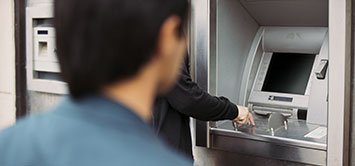Cheque fraud
Cheque fraud

- Counterfeit cheques, where fraudsters create fake cheques using genuine account details.
- Forged cheques, where genuine cheques have been stolen and used by a fraudster with a forged signature.
- Fraudulently altered cheques, where genuine cheques have been altered by a fraudster before being paid in.
Protect yourself from Cheque Fraud
- Draw a line through all unused space after both the payee’s name and the amount.
- If you make an error, sign against any corrections or destroy the cheque and write another.
- Never sign a cheque and leave the payee blank.
- Never accept a cheque from someone unless you know and trust them. Be especially wary when accepting a high–value cheque; for instance if you are selling a car.

Different ways criminals contact victims
Criminals might try to contact you via phone, email, text message or in person.

Protecting yourself from investment fraud
Be vigilant of investments that seem too good to be true. Always do your research.

Protecting yourself from identity fraud
Criminals try to impersonate victims to steal money. You can protect yourself.

Debit & credit card fraud
Protecting your debit and credit card data is crucial in the fight against fraud.

Impersonation fraud and cloned firms
Fraudsters often impersonate others when trying to steal your money and data.

Romance scams
Fraudsters often start romantic relationships with victims in person of via dating apps and websites.

Payment redirection
Often affecting businesses, this is when a fraudster finds a way of changing payment details when paying invoices.
Becoming a client
Take control of your finances today by completing our enquiry form. Alternatively, you can call us on the number below and one of our team will be more than happy to talk about your future.